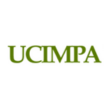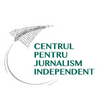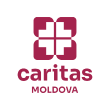Organizații vizate:
- Detalii
- Categorie: Achiziție bunuri, Contractare Servicii
People in Need is looking for Expert(s) for Conducting Gender and Social Inclusion (GESI) Analysis for Moldova
Informațiile prezentate în articolul de mai jos pot să nu mai fie actuale sau să nu mai reflecte activitățile și programele curente. Anunțul este păstrat în arhivă pentru a asigura transparența și accesul public la informațiile despre inițiativele și proiectele implementate anterior.
Terms of Reference
Expert(s) for Conducting Gender and Social Inclusion (GESI) Analysis for Moldova
1. Background and Context
People in Need (PIN) is an international non-profit organization based in the Czech Republic, established in 1992. PIN focuses on humanitarian aid, development cooperation, and advocacy for human rights. PIN works in various regions, including Eastern Europe, Africa, and Asia, addressing issues like poverty, social inequality, and disaster relief. The various projects aim to address pressing issues in the contexts of emergencies and development as well as to empower vulnerable and marginalized communities.
Since 2004, PIN has been active in Moldova, supporting vulnerable individuals, civil society and public institutions. PIN Moldova has extensive experience in strengthening civil society and promoting participatory processes through grants and partnerships. Working with local and international partners enables PIN to coordinate effective responses and advocate for the needs of vulnerable populations. PIN provides comprehensive and integrated humanitarian and development assistance in emergencies, education, protection, social protection, rural development and livelihood fields. Direct support includes cash and in-kind assistance, psychosocial and social cohesion activities, education and child protection services. PIN Moldova also actively engages local communities, organizations and institutions in recovery efforts, empowering them through skills training and capacity building programs.
2. Project Overview
PIN is committed to carrying out Gender Equality and Social Inclusion (GESI) Analyses on a regular basis at the Country Programme level as well as at project level, to ensure that PIN’s programs and interventions are inclusive, equitable, and effective, to ensure that marginalized groups are not overlooked, that barriers to equality and inclusion experienced by different population groups are identified and addressed, and that PIN actions promote the empowerment and participation of vulnerable population groups.
While the GESI Analysis will primarily focus on the Country Programme level, it will also focus on key issues related to PIN specific projects:
- Country Programme: The GESI Analysis will provide a comprehensive understanding of the unique social dynamics, gender inequalities, and exclusionary practices within the Moldovan context.
- ASSIST: "Moldovan Active Society Stabilizing Internal Social Tensions" project, funded by the European Commission's Service for Foreign Policy Instruments (FPI) and implemented by PIN Moldova. The project aims to improve the access of vulnerable and marginalized groups to public services during national reforms through enhanced capacities of CSOs and public service providers, and to foster community engagement in social cohesion and conflict prevention activities.
- ECHO Place: The project aims at providing emergency aid in Moldova to the most vulnerable conflict-affected populations fleeing Ukraine. PIN Moldova, together with its partners, provides psychosocial support and protection assistance to Ukrainian refugees and vulnerable Moldovans, particularly children and individuals from marginalized groups who have limited access to services, throughout Moldova.
2. Objectives of the GESI Analysis
Country Programme Level GESI Analysis
Key overall objectives of the GESI Analysis are:
- Understand the context-specific barriers to Gender Equality and Social Inclusion, examining intersectionality and how different social identities (e.g., gender, disability, ethnicity, age, etc.) intersect to create specific barriers, as well as multiple layers of disadvantage and exclusion. Identify excluded groups and groups at risk of exclusion, and address and mitigate risks of exclusion and harm, including potential risks that might exacerbate gender inequality or exclusion during the implementation of programs (such as discriminatory practices, exclusion from benefits, services and processes).
- Develop tailored and actionable recommendations to ensure that interventions are designed to prevent unintended negative impacts on vulnerable groups (Do No Harm) and do not perpetuate or reinforce existing inequalities but rather promote equal access to opportunities and service, strengthen participation, representation, voice, and decision making power, enhancing program effectiveness and sustainability and fostering social cohesion and conflict sensitivity.
Project Specific Objectives
The analysis will also ensure to:
- Gather data on the needs, preferences, and experiences of marginalized groups regarding public services (access, use) to inform more inclusive service delivery (M. ASSIST)
- Analyze the specific barriers that vulnerable and marginalized groups from Moldova face in accessing public services, focusing on gender-specific and socio-economic challenges (M. ASSIST)
- Highlight the differences between and among women and men, girls and boys in terms of the distribution of resources, opportunities, constraints and power in Moldova (M. ASSIST)
- Recommend key actions to mainstream gender equality and social inclusion throughout project implementation (M. ASSIST)
- Develop strategies for a successful intervention that promotes empowerment of women and girls throughout project implementation (M. ASSIST)
- Analyse existing power dynamics and gender norms within communities, focusing on how these impact individuals’ experiences and needs regarding protection and influence access to protection services and resources for different genders and marginalized groups. (PLACE)
- Identify systemic barriers that prevent women, girls, children, persons with disabilities and other marginalized groups from accessing protection services and participating in decision-making processes (PLACE)
- Recommend strategies to ensure the meaningful participation of diverse groups such as persons with disabilities, elderlies and marginalized groups in the design and implementation of the project (PLACE)
3. Scope of Work, Key Tasks and Methodology
In line with PIN practice, the expert/s is/are expected to involve both quantitative sex/gender-age-diversity disaggregated data and qualitative gender and inclusion analytical information collected from different population groups and key stakeholders in the target areas.
The final structure of the research will be determined by the research consultant in discussion with the project management team and PIN’s Protection, Gender and Inclusion Lead Advisor.
The expert(s) will perform the following key tasks:
|
Secondary Data Review (DESK REVIEW) Overview of gender norms, relations and inclusion/exclusion in the country. |
Read and utilize existing data/information/analyses and identify possible gaps that can be covered through the GESI Analysis FGDs/KIIs (primary data collection) · Collect up-to-date information from reliable sources (including, but not limited to, Social Institutions & Gender Index, Moldova Comprehensive Gender Assessment (UN Women); Moldova Country Gender Profile (European Commission) and other relevant studies conducted by NGOs or research institutes) that provide a general picture of the status and rights of different gender, age and diversity groups (e.g. persons living with disability, minority groups and indigenous populations, IDPs, refugees, etc). This should include: o Gender and Social Norms o Gender and inclusion/exclusion barriers in access to assistance and services, opportunities, voice, representation, participation in processes, decision making power o Specific groups at greater risk of exclusion, discrimination · Consult available sex/gender, age, diversity disaggregated quantitative and qualitative data that may reveal relevant gender and inclusion/exclusion issues in the country, as well as in the specific sectors (see above) and area of social services, inclusion and protection.
|
|
Production of a Desk Review Report |
The report will include comprehensive of information from the literature review. The report will highlight possible gaps in available information. Initial recommendations will be provided to better tailor primary data collection. |
|
Draft surveys, FGDs, KIIs to fill in the identified gaps, primary data collection |
Identify key stakeholders to interview and draft FGDs and KIIs tools and questions. Conduct KIIs and FGDs. · KIIs - organized with key informants from different population groups, ensuring representation (e.g. local gov. authorities, stakeholders supporting vulnerable groups in the municipality, community leaders, village heads in rural areas) · FGDs with different population groups and community members– , organized also to better understand the intrahousehold, community level and intracommunity gender and inclusion/exclusion dynamics related to workload, opportunities, rights, participation, representation, resources allocation, decision making power and access to services, resources/income |
|
Data analysis |
Data analysis, triangulation of results |
|
Presentation of the Findings and initial recommendation |
Develop a presentation summarizing the key findings and recommendations to PIN and relevant stakeholders. |
|
Report development |
Will include conclusions and tailored, actionable recommendations for: · Gender and inclusion responsive programming; GESI integration (mainstreaming) at the Country Programme Level, GESI integration (mainstreaming) at the project level, including potential for gender transformative actions |
|
Action Plan Recommendations |
Recommendations for integrating gender-sensitive/transformative actions into the M. ASSIST and PLACE project, including capacity-strengthening needs for partners. |
4. Target Locations
Moldova and project relevant locations
5. Expected deliverables
The expert(s) will provide the following deliverables:
- Detailed research methodology (in agreement with PIN’s Protection, Gender and inclusion Lead Advisor, Head of MEAL and PIN Protection Programme Manager)
- Desk Review Report (with initial recommendations)
- Develop relevant data collection tools/questionnaire validated by PIN’s Protection, Gender and inclusion Lead Advisor and other assigned staff from Programme and MEAL.
- List of stakeholders to interview
- Draft analysis of initial findings and proposed additional interviews
- Review of draft analysis and recommendations
- Presentation of Findings: A presentation summarizing the key findings and recommendations to PIN and relevant stakeholders.
- Final GESI Analysis Report, inclusive of actionable recommendations. The Report will be validated by PIN’s Protection, Gender and inclusion Lead Advisor
- Action Plan Recommendations: Recommendations for integrating gender-sensitive/transformative actions into the M. ASSIST and PLACE project, including capacity-strengthening needs for partners.
5. Qualification Criteria
The expert(s) should possess the following qualifications:
- Education: Bachelor’s degree in Gender Studies, Social Sciences, Research Methods, Statistics, or other relevant fields.
- Professional Experience: A minimum of 3 years of extensive experience in gender issues and the application of gender-sensitive approaches.
- Analytical Skills: Proven experience in conducting gender and social inclusion analyses, preferably in social inclusion or protection, using both qualitative and quantitative research methodologies (at least one sample of previous work).
- Languages: Fluency in Romanian, English and Russian.
6. Duration and Timeline
The assignment is expected to commence on 2nd of December 2024 and be completed by 14th of February 2025, including all deliverables. A detailed timeline will be agreed upon with the selected expert(s) during the inception phase.
7. The selection process will proceed as follows:
Applicants will be assessed by an Evaluation Committee based on the criteria mentioned below. After evaluating the technical and financial offers, candidates will be invited for an interview in order to complete the evaluation process.
Cumulative analysis
The award of the contract shall be made to the consultant/team whose offer has been evaluated and determined as:
a) responsive/ compliant/ acceptable, and
b) having received the highest score out of a pre-determined set of weighted technical and financial criteria specific to the solicitation.
* Technical Evaluation weight – 70% (70 pts);
* Financial Offer weight – 30% (30 pts);
|
Criteria |
Scoring |
Maximum Points Obtainable |
|
Technical evaluation |
||
|
Studies in fields such as Gender Studies, Social Sciences, Research Methods and statistics and other relevant fields; |
Bachelor’s degree – 0 pts Master’s degree – 5 pts |
5 |
|
Collaboration or professional experience with international organizations, national civil society organizations; |
Yes – 5 pts, No - 0 |
5 |
|
Extensive experience in the field of gender issues and gender-sensitive approaches; |
3 year – 0 pts 4 years – 5 pts 5 and more – 10 pts |
10 |
|
Proven experience in conducting gender analyses, preferably in social inclusion, protection, or related sectors (publications) |
1 publication – 0 pts 2 publications – 5 pts 3 publications – 10 pts |
10 |
|
The quality and relevance of the provided sample that demonstrate the candidate's experience in gender and inclusion analyses and application of qualitative and quantitative research methodologies. |
Clarity and structure – 2 pts; Application of qualitative and quantitative research methodologies – 3 pts; Relevance to gender and social Inclusion – 5 pts |
10 |
|
The clarity and feasibility of the proposed general approach, methodology and workplan. |
Clarity of the proposed approach – 2 pts; Risk mitigation and flexibility – 3 pts Relevance and feasibility of the methodology – 5 pts; |
10 |
|
Interview evaluation |
||
|
Oral and written fluency in Romanian, English, and Russian |
Yes – 5 pts, No – 0 pts; |
5 |
|
Excellent organizational and coordination skills, ability to prioritize and communicate effectively, strong ethical standards; |
Yes – 10 pts, No– 0 pts; |
10 |
|
Familiarity with the Moldovan context, including legal, social, and cultural aspects affecting gender dynamics. |
Yes – 5 pts, No– 0 pts; |
5 |
|
Maximum Total Technical Criteria Scoring |
70 |
|
Minimum Technical Threshold: The minimum competency level for the technical evaluation is for Applicants to reach at least 70% out of maximum possible 70 points on the technical evaluation.
|
Financial Offer |
|
|
Evaluation of submitted financial offers will be done based on the following formula: S = Fmin / F * 30 S – score received on financial evaluation; Fmin – the lowest financial offer out of all the submitted offers qualified over the technical evaluation round; F – financial offer under consideration. |
30 |
|
Maximum Total Financial Scoring |
30 |
8. The offer shall include:
- Motivation letter explaining your interest in the position and why you consider yourself suitable for this role;
- Detailed CV including at least two references from individuals or organizations; if there will be more than 1 person involved than CVs of all experts;
- Technical Offer: general approach, coordination and quality assurance with a draft methodology and timeframe. The candidate's opinion, based on experience, of the number of days required for each activity. The technical offer should include at least one sample of previous work demonstrating his/her expertise such as links to relevant studies, articles etc., blog posts or other published work on relevant topics;
- Financial proposal: price requested for the work to be carried out (MDL, brut).
The application file should be sent in electronic format to the following address: tender.moldova@peopleinneed.net with the text in the title of the message "Gender and Social Inclusion (GESI) Analysis Expert(s)" until 15.11.2024, 23:59. Applications submitted after the mentioned date and time and incomplete applications will not be reviewed.
- OEAPM - RoEI - National Consultant for provision of consulting services on development of the national methodology for seismic and disaster risk maps of residential and public buildings
- CRS is hiring ICT4D and Data Management Officer
- Gender-Centru is hiring consultants to facilitate national and regional sessions and round tables on gender-based violence case management
- BNM angajează economist/ă coordonator/oare, responsabil/ă de control și evaluare riscuri
- Job opportunity - EducationUSA Junior Advisor
2025 CIVIC DIGITAL SOLUTIONS
Email: support@portal.civic.md










